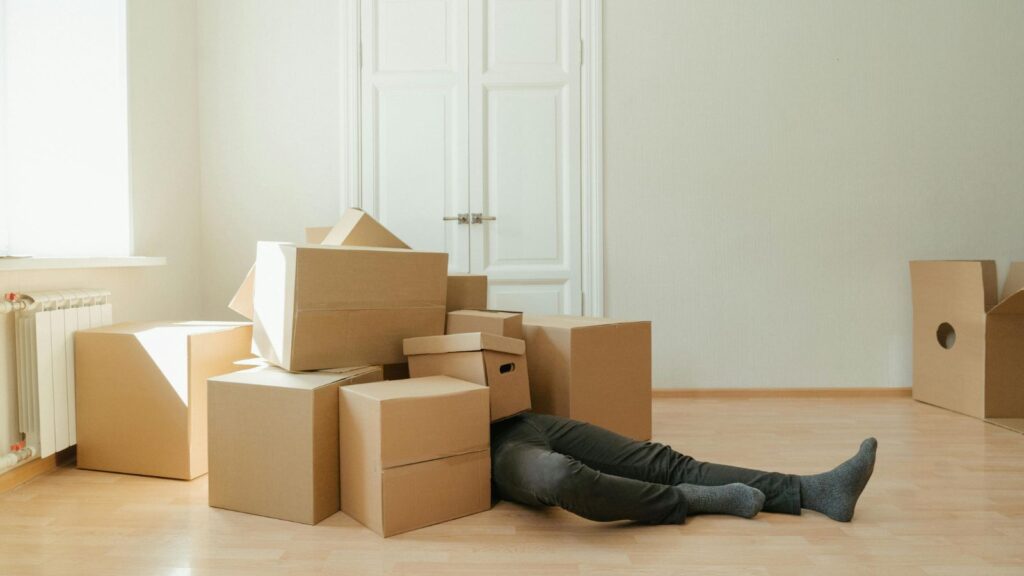
Keeping your sanity during a solo move is a challenge many underestimate. Unlike moving with help, you don’t have anyone to split the tasks or provide emotional support. From heavy lifting to remembering all the small details, solo moves test your mental and physical strength. But with a clear plan and a focus on self-care, it is possible to move without falling apart in the process. This guide provides practical advice for managing your time, energy, and stress levels effectively. You’ll find tips that help, not vague ideas that waste your time. Whether you’re moving across the street or to a new city, these simple methods can keep you stable and grounded.
Start Early and Break Tasks into Chunks
One of the easiest ways to feel overwhelmed is to leave everything until the last minute. Begin the packing process at least two weeks before your move. Create a checklist of all tasks. Break larger jobs into smaller steps. For example, pack one room each day. Consider getting advice or services from leading movers to make the process more efficient and less stressful. Label each box clearly. List what’s inside and where it goes in the new space. That helps you stay organized and saves time when unpacking. Use a calendar or app to schedule tasks daily. That avoids the feeling that everything must be done all at once. Taking action in small steps reduces stress and builds momentum.

Clean Space- Clean Head
Cleaning before and after a move takes longer than most people expect, so block out time in your schedule, especially if you were renting your old place and you’re aiming to get your security deposit back. You can handle all the cleaning with basic tools like a broom, mop, multi-surface cleaner, and trash bags. Tackle one room at a time, beginning with high surfaces and working your way down. Focus on areas that have already been cleared out to avoid redoing work.
For your new place, clean before bringing in boxes. Dust shelves, wipe counters, and disinfect handles and switches. If it feels overwhelming, consider hiring a professional for a few hours. Walking into a fresh space—or leaving one behind spotless—makes the transition feel smoother.
Protect Your Body and Your Energy
Moving is hard on the body, especially when you’re doing it alone. Lifting heavy items the wrong way can lead to injury. Use moving tools such as dollies, straps, and sliders. If you need to move large furniture, disassemble it first. Drink water regularly, support your well-being with good food, and take breaks. Wear shoes with a good grip and avoid lifting more than you can handle. You don’t have to prove anything to anyone. Your main job is to get everything done safely. A short rest every hour helps your muscles recover and keeps your mind sharp. Respect your limits and work smart.
Alt: woman feeling good
Caption: Support your overall well-being with food, hydration, and stretches.

Focus on One Thing at a Time
Multitasking slows you down and increases stress, and it is not good for keeping your sanity during a solo move. Pick one task and stick with it until it’s done. For example, don’t start packing the kitchen and then shift to the bedroom mid-way. Finish one room before moving to the next. That gives you a sense of progress and keeps your focus sharp. Keep distractions away. Put your phone on silent if you need to. You can check messages once you’re done with the task. Use a timer if needed. Work for 45 minutes, then rest for 15. This routine helps keep you productive without burning out.
Get Help Where You Can
Even a solo move doesn’t have to mean doing everything alone. Think about services you can pay for or friends who can help for a few hours. Hire help for heavy items or transport if needed. If your budget is tight, ask a friend to help with packing or unpacking. More hands lighten the work, even for just a short time. Be clear about what you need when asking. People are more likely to say yes to a task with a clear start and end. Accepting help is smart, not weak. It protects your energy and speeds up the process.
Keep Your Mental Health in Check
Your mind needs as much care as your body during a move. Solo moving can bring stress, sadness, or even panic. It’s normal to feel these things, but you can take steps to feel better. Set aside time each day for something relaxing. That could be a short walk, a chat with a friend, or 20 minutes with your favorite music. Keep your meals regular and try to sleep at normal hours. Mental focus drops when you’re tired or hungry. Try not to isolate yourself. Even a short phone call can lift your mood and remind you you’re not alone. Often, self-care strategies, even if minor, can improve your mental health.
Alt: A woman talking on the phone
Caption: Keeping your sanity during a solo move can look like this- keeping in touch with your loved ones.

If Possible, Hire Help—You Don’t Have to Do It All Alone
Moving by yourself is hard. If it’s within your budget, consider hiring professionals to help. Movers can take care of the heavy lifting. Packers can speed things up and handle fragile items safely. Cleaners can step in at the end when your energy is likely at its lowest. That isn’t about taking the easy way out—it’s about protecting yourself from exhaustion and stress—your health and peace of mind matter. Even booking a few hours of support can make the entire move feel more manageable.
Reclaim Calm After the Move
Once you’re in your new place, don’t rush to unpack everything at once. Start with the basics—bed, bathroom, and kitchen. Set up a calm space where you can relax. Even one clean corner with your favorite blanket or candle can make the space feel welcoming. Take time to breathe. You’ve done something hard and deserve rest. Give yourself a full day off if possible. Avoid planning anything major right after the move. Let your body recover. Keeping your sanity during a solo move means knowing when to stop and reward yourself for the effort.
Alt: woman moving solo
Caption: If possible, hire help even for a couple of tasks, a couple of hours.
Keeping Your Sanity During a Solo Move: You Can Stay in Control and Calm
Keeping your sanity during a solo move isn’t about being perfect—it’s about staying in control. Start early, work in steps, protect your energy, and give yourself mental breaks. Focus on safety and call in help when you need it. Stick to a routine and avoid doing everything in one day. Don’t forget to clean the old place before you hand over the keys. Once the move is done, take time to reset and enjoy your new space. With the right plan, you can move on your own without losing your balance.







